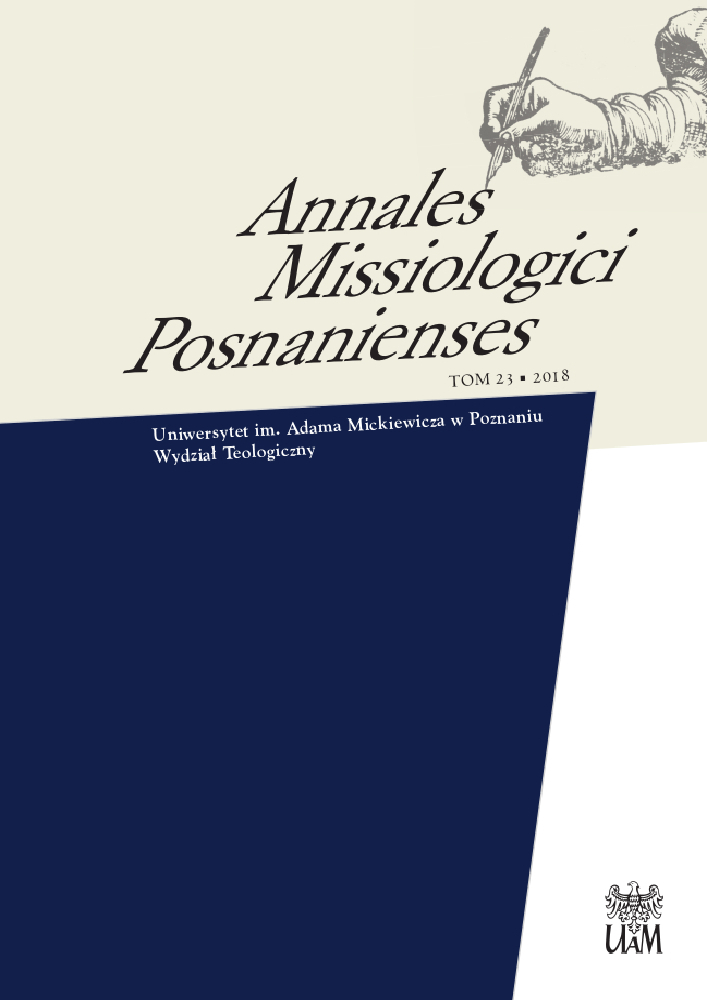Abstrakt
The turning point of Icelandic history was the reception of Christianity. After the discovery of the island, and then its settlement and the organization of an independent state, this was another step in the unification of the Icelandic nation. The circumstances of Iceland's acceptance of Christianity are peculiar in comparison with other countries in Europe at that time. While the decision to accept a new religion was usually made by the ruler, in Iceland the introduction of Christianity took place by the decision of the pagan parliament. Opposition to each other, the pagan and Christian factions, through reasonable negotiations, agreed in a bloodless manner on political agreement in this matter. The national assembly – Althingi – made a resolution in the summer of 1000 establishing a Christianity valid for the whole country religion. It is worth noting that pagan priest and clan leader Thorgeir Thorlaksson, played a crucial role here. Iceland was thus a country that was an exception to the European countries, which accepted a new faith through the conscious and voluntary decision of its inhabitants.
Finansowanie
Uniwersytet Kardynała Stefana Wyszyńskiego w Warszawie Wydział Teologiczny
Bibliografia
Aðalsteinsson, J. Hnefill. „Under the Cloak. The Acceptance of Christianity in Iceland with Particular Reference to the Religious Attitiudes Prevailing at the Time.” Studia Ethnologica Upsaliensia (1978) 4: 1-151.
Byock, Jesse. Viking age Iceland. London: Pengiun Books, 2001.
Magnússon, Sigurdur. Northern Sphinks. Iceland and Icelanders from settlement to the present. London: C. Hurst and Company, 1977.
Miotk, Andrzej. „Peregrinatio pro Christi amore we wczesnym średniowieczu.” Studia Warmińskie 39 (2002): 161-168.
Neill, Stephen. A History of Christian Missions (The Pelican History of the Church 6). Baltimore: Pelikan, 1964.
Njardvík, Njörður. Birth of a nation. The story of the Icelandic Commonwealth. Tłum. John Porter. Reykjavík: Iceland Review, 1978.
Pálsson, Einar. Celtic Christianity in pagan Iceland. Reykjavík: Mímir, 1985.
Scherman, Katharine. Iceland: daughter of fire. London: The Travel Book Club, 1977.
Torfason, Ólafur. Kaþólskur annáll Íslands: ártöl sem tengjast sögu rómversk-kaþólskrar kirkju á Íslandi. Reykjavík: Þorlákssjóður, 1993.
Trial, Georg. History of education in Iceland, Cambridge: W. Heffer and Sons LTD, 1945.
Wittmann, Pius. “Iceland.” The Catholic Encyclopedia. Vol. 7. New York: Robert Appleton Company, 1910. 615-617.
Licencja
Prawa autorskie (c) 2019 Grzegorz Adamiak

Utwór dostępny jest na licencji Creative Commons Uznanie autorstwa – Bez utworów zależnych 4.0 Międzynarodowe.
PRACE PUBLIKOWANE W CZASOPIŚMIE DOSTĘPNE SĄ NA LICENCJI CREATIVE COMMONS:
Przed 2006 do wszystkich tekstów opublikowanych prawa autorskie są zastrzeżone.
Autorzy
Autorzy tekstów przyjętych do publikacji w czasopiśmie Annales Missiologici Posnanienses są zobowiązani do wypełnienia, podpisania i odesłania na adres redakcji umowy o udzielenie nieodpłatnej licencji do utworów ze zobowiązaniem do udzielania sublicencji CC.
Zgodnie z umową, autorzy tekstów opublikowanych w czasopiśmie Annales Missiologici Posnanienses udzielają Uniwersytetowi im. Adama Mickiewicza w Poznaniu niewyłącznej i nieodpłatnej licencji Creative Commons Attribution-NonCommercial-NoDerivatives 4.0 International (CC BY-NC-ND 4.0) oraz zezwalają na sublicencje na tych samych warunkach.
Autorzy zachowują prawa do dalszego, swobodnego rozporządzania utworem.
Użytkownicy
Zainteresowani użytkownicy internetu uprawnieni są do korzystania z utworów opublikowanych od 2021 roku w Annales Missiologici Posnanienses pod następującymi warunkami:
- uznanie autorstwa – obowiązek podania wraz z rozpowszechnionym utworem, informacji, o autorstwie, tytule, źródle (odnośniki do oryginalnego utworu, DOI) oraz samej licencji;
- użycie niekomercyjne – nie należy wykorzystywać utworu do celów komercyjnych;
- bez tworzenia utworów zależnych – utwór musi być zachowany w oryginalnej postaci, nie można bez zgody twórcy rozpowszechniać np. tłumaczeń, opracowań.
Zainteresowani użytkownicy internetu uprawnieni są do korzystania z utworów opublikowanych w latach 2006-2020 w Annales Missiologici Posnanienses pod następującymi warunkami:
- uznanie autorstwa – obowiązek podania wraz z rozpowszechnionym utworem, informacji, o autorstwie, tytule, źródle (odnośniki do oryginalnego utworu, DOI) oraz samej licencji;
- bez tworzenia utworów zależnych – utwór musi być zachowany w oryginalnej postaci, nie można bez zgody twórcy rozpowszechniać np. tłumaczeń, opracowań.
Inne
Uniwersytet im. Adama Mickiewicza w Poznaniu zachowuje prawo do czasopisma jako całości (układ, forma graficzna, tytuł, projekt okładki, logo itp.).


